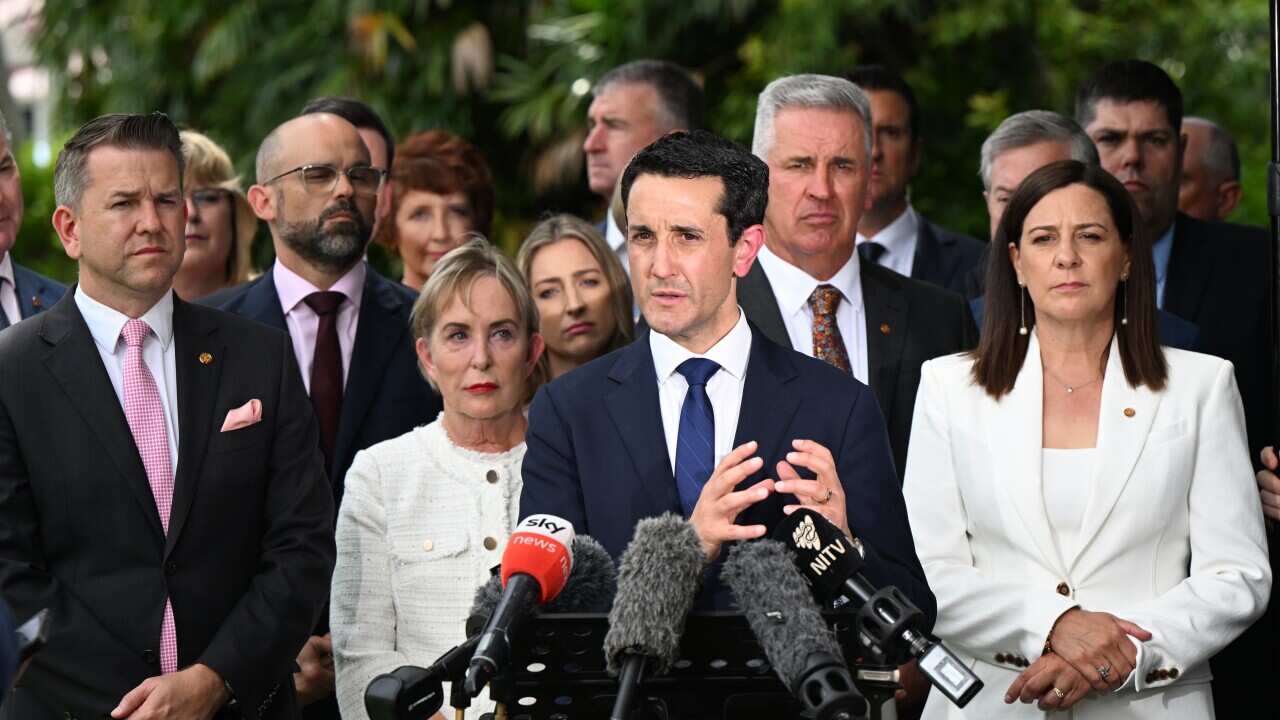When Lacey Harrison and her family began noticing electrical faults in their home, she feared that worst-case scenario, her home could catch on fire.
But something far more sinister occurred, leaving her 11-year-old daughter Denishar Woods blind and with a catastrophic brain injury after being electrocuted when touching a garden tap.
On Monday morning the family, alongside Gerry Georgatos from the National Indigenous Critical Response, and their lawyer Stewart Levitt of Levitt Robinson Solicitors will announce that they will be starting legal proceedings against the Western Australian State Government and the Department of Housing.
“The best case scenario would be to have my little girl back. No money, not nothing is going to change how we feel or the traumatisation we’ve been through,” Ms Harrison told NITV News.

Denishar Woods before the tragedy that changed her life. Source: Supplied
Around 8pm on March 3 this year Ms Harrison was watering the garden of her Perth home.
She called out to her girls to turn the kettle on so she could make a coffee, but upon one of them turning the kettle on, the family claims it short-circuited the house, with the meter box giving her a small electrical shock when she attempted to reset the main power switch.
Identifying a potentially dangerous situation, she contacted Homes West to have it fixed immediately.
“I thought I was using my own initiative to try and keep my kids safe, to protect them from the house lighting on fire,” Ms Harrison said.
She said she questioned the operator as to whether or not it was safe to stay at home, and was advised that an electrician would head out either that evening, or the next day.
Telling the kids they’d head across the road to McDonalds for some ice cream and a coffee while waiting for the electrician to arrive, Ms Harrison asked 11-year-old Miss Woods to turn off the garden tap for her.
The next thing she heard was her 14-year-old son’s bloodcurdling screams as he witnessed his sister being electrocuted, or as Ms Harrison describes it, ‘burning from the inside out’.
“I went running around clockwise to her and I see my daughter stuck on the tap, her whole body convulsing and shaking all over,” she said.
“As I’ve gone running to grab her, I’ve fallen on the brick paving and laid down beside her for 15 minutes.”

Denishar Woods with her mother Lacey Harrison. Source: Supplied
Ms Harrison also experienced an electric shock, while her horrified children watched on.
The family's lawyer Stewart Levitt said it will be claimed that the Western Australian Government appears to be in breach of its duty of care.
“The family has suffered grievously as a result of the fact that their property was not properly wired or maintained and were exposed to this terrible risk that actually materialised in a tragedy,” Mr Levitt alleges
He is hoping to secure compensation on behalf of Miss Woods and Ms Harrison so that Miss Woods can be looked after comfortably for the rest of her life.
Mr Georgatos said although the Department of Housing has relocated the family, more needs to be done on their part.
"The Department of Housing has relocated the family to a more appropriate home and an onsite carer facility with occupational therapy infrastructure, hoists, ramps, etcetera, has been committed to by the Department but much more needs to be committed to and achieved expeditiously,” Mr Georgatos said.
"The family will have to lifelong manage the care of Denishar, who is likely permanently blind, who has little mobility, who is enduring cognitive narrowing. This incredible solid family will never be able to leave Denishar's side."
The Minster for Housing, Peter Tinsley is meeting with Ms Harrison on May 30. He said the 'tragic incident' was being investigated by the Office of Energy Safety WA, which is under the Minister for Mines and Petroleum, Bill Johnston.
A representative of Mr Johnston's office said the investigation is ongoing, and are unsure whether or not a report would be released.
“In relation to the meeting with Denishar’s family on 30 May, I am reluctant to pre-empt any outcome or to take any expectations into that meeting. I will be there to listen," Mr Tinsley said.
"But I would like to say that I have previously visited Denishar while she was in hospital and met her mother at that time under very difficult circumstances for her and her family.
“As a father myself, my heart went out to that woman – I can only imagine her pain. During that meeting, I offered Ms Harrison and her family all the support and assistance that was within my remit.
“That offer remains."

Denishar Woods with her sisters Anita (L) and Jeanette (R). Source: Supplied
Mr Tinsley said the Department had so far provided the following support for the family:
- Relocated Ms Harrison and her family to a four-bedroom property in Marangaroo, which they occupied on 27 March 2018.
- In consideration of the circumstances and on compassionate grounds, the Department is not currently charging the family rent for the Marangaroo property until 30 June 2018.
- Arranged a referral for Ms Harrison to its Support and Tenant Education Program (STEP) for further assistance and support.
- Rent concession of four weeks rent provided to the tenant as the family were not occupying the Beldon property as a result of the incident.
- Other tenant charges were waived from Ms Harrison’s account.
However the past few months have still been a long emotional and financial struggle for the family, with Mr Georgatos saying when he first spoke with the family, they had received hardly any support in their additional day-to-day expenses.
“When I first met this family at the hospital a week after this happened, services had not supported them at all,” he said.
“I found the siblings, the mother, and the family with only $10. That’s all they had to feed themselves with at the hospital during the vigil.
“This isn’t the state I should have found them in in a critical period. I should have found them supported by all the critical services.”
For Ms Harrison, the life changing tragedy certainly hasn’t been easy for her family financially, living on a single parent pension.
But although she fears she will not be able to cope financially, she says it’s not about money for her, it’s about justice - and the best compensation she could have would be for it to have never happened.
“It’s sad. It’s so sad and I’m so angry and frustrated."









